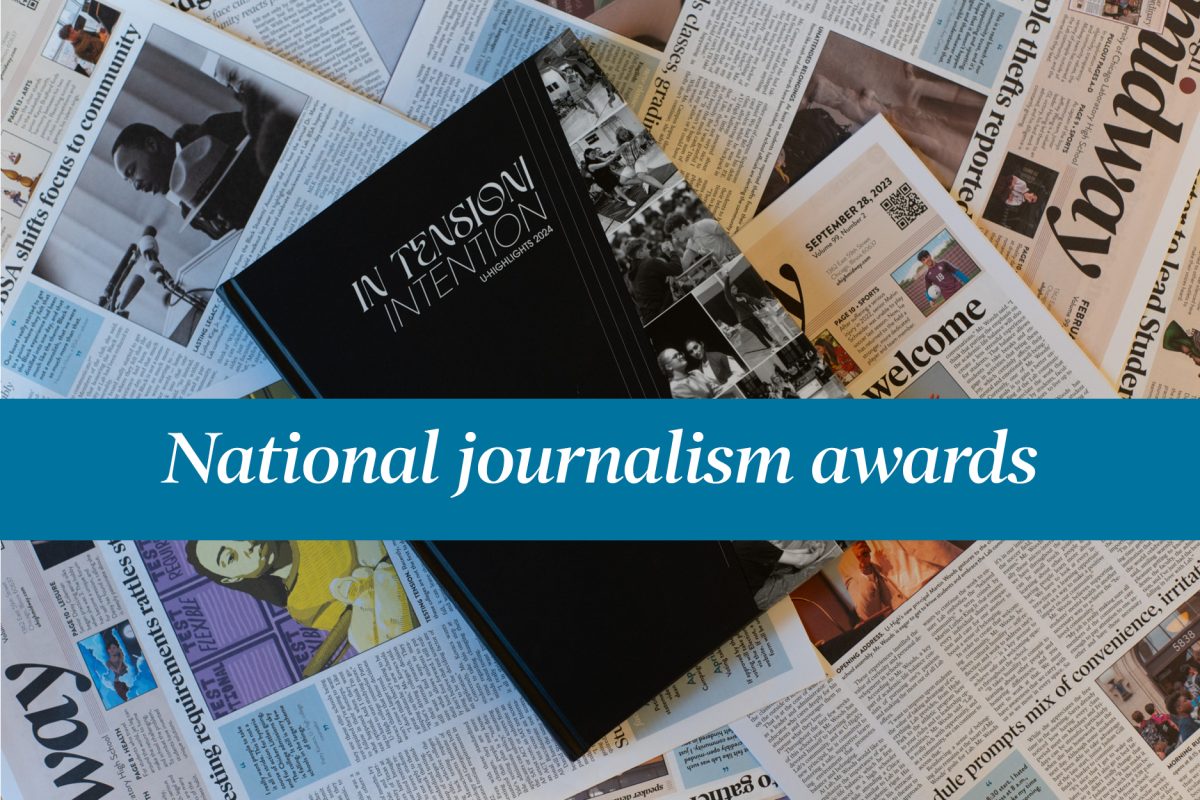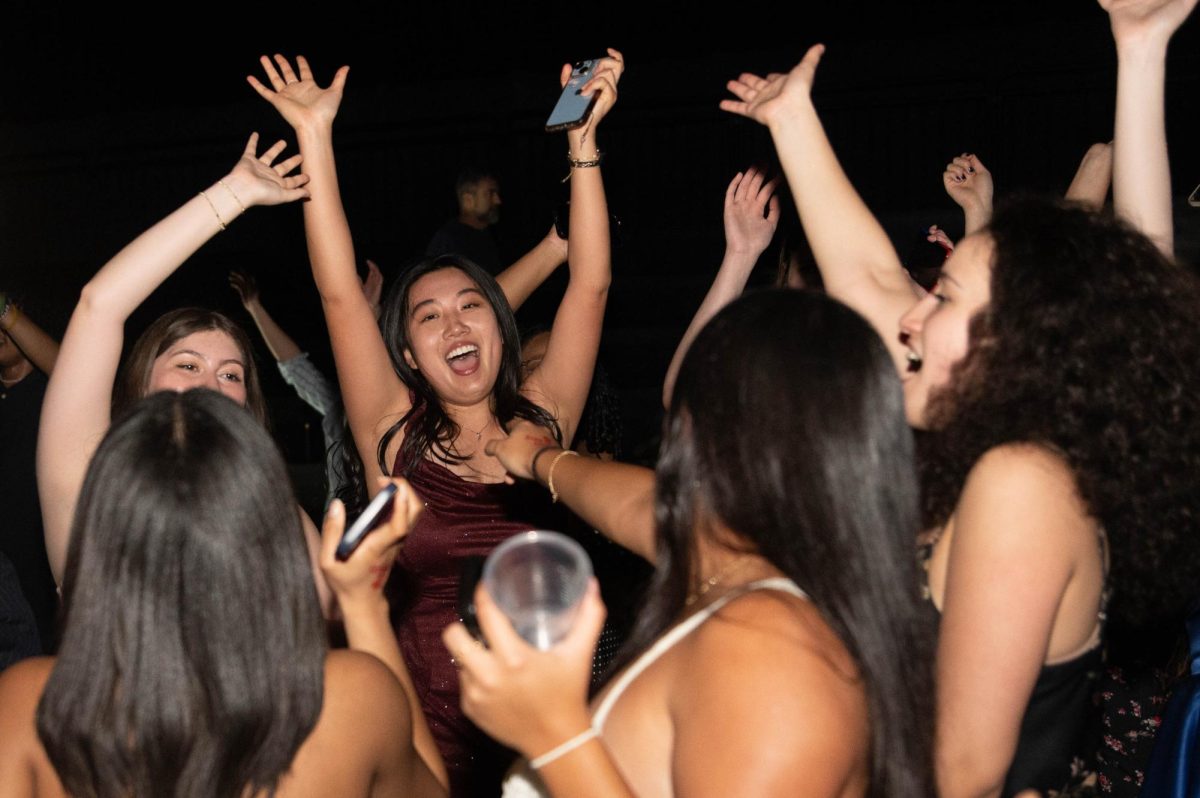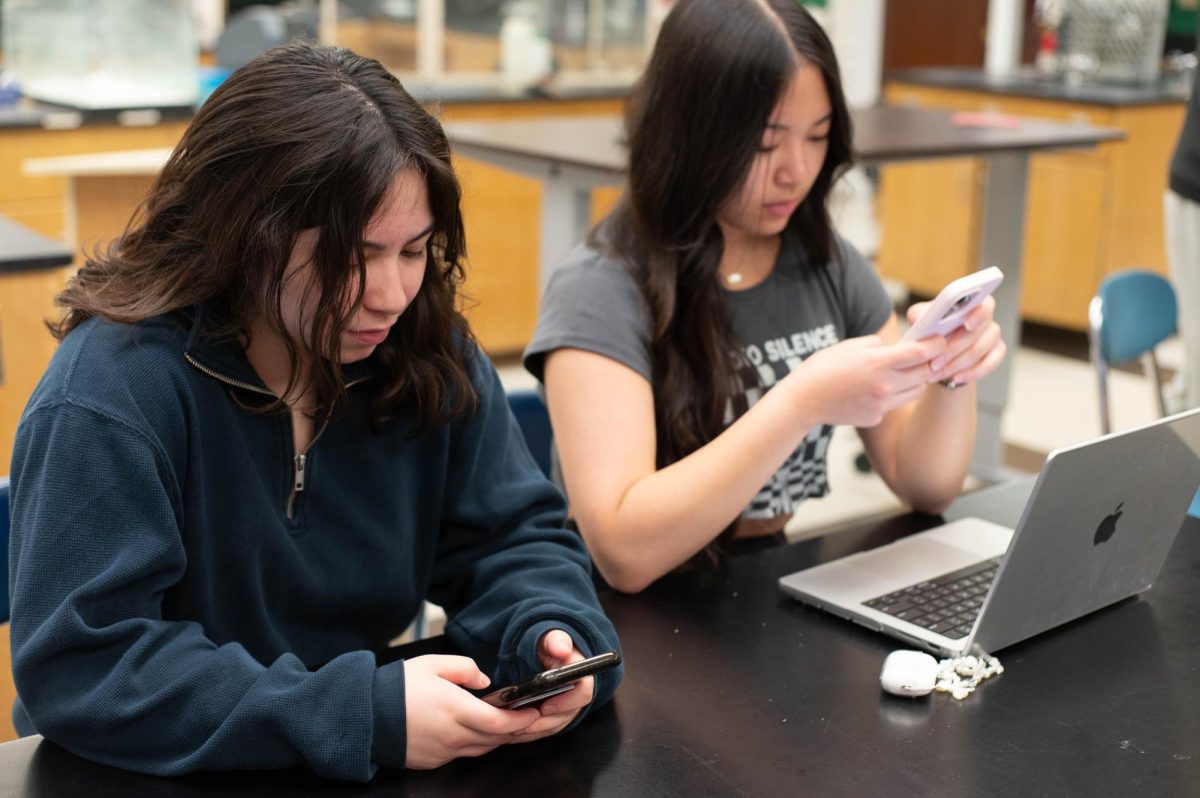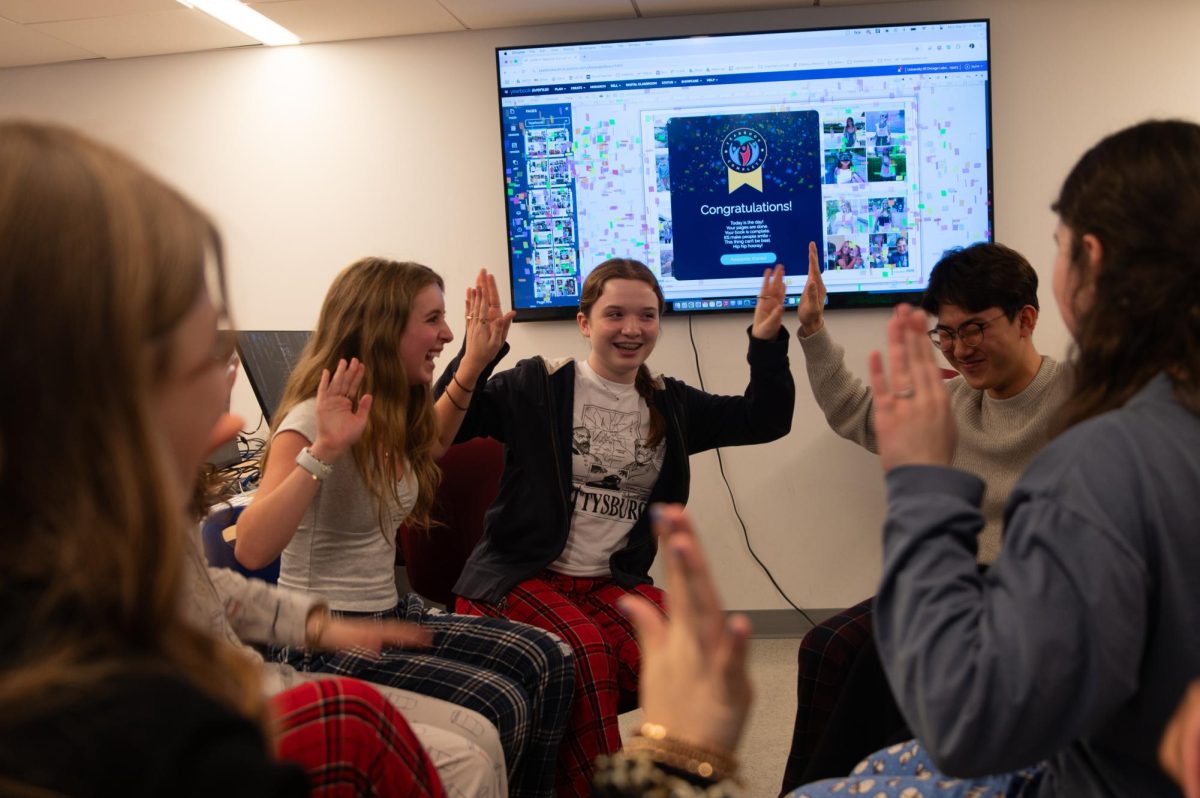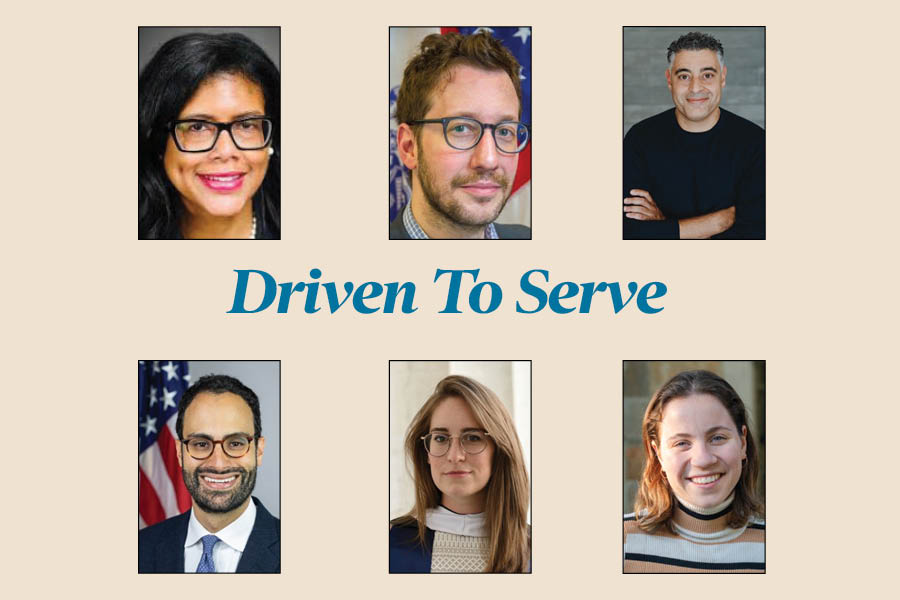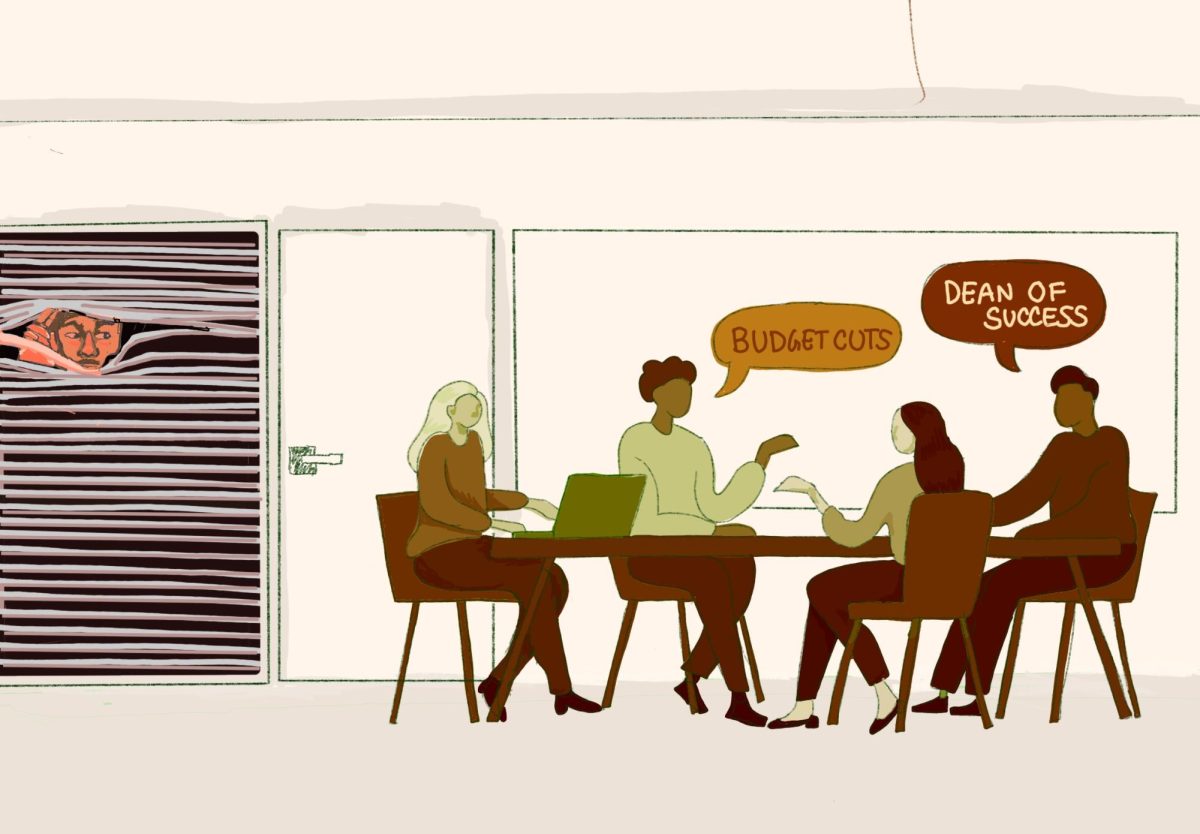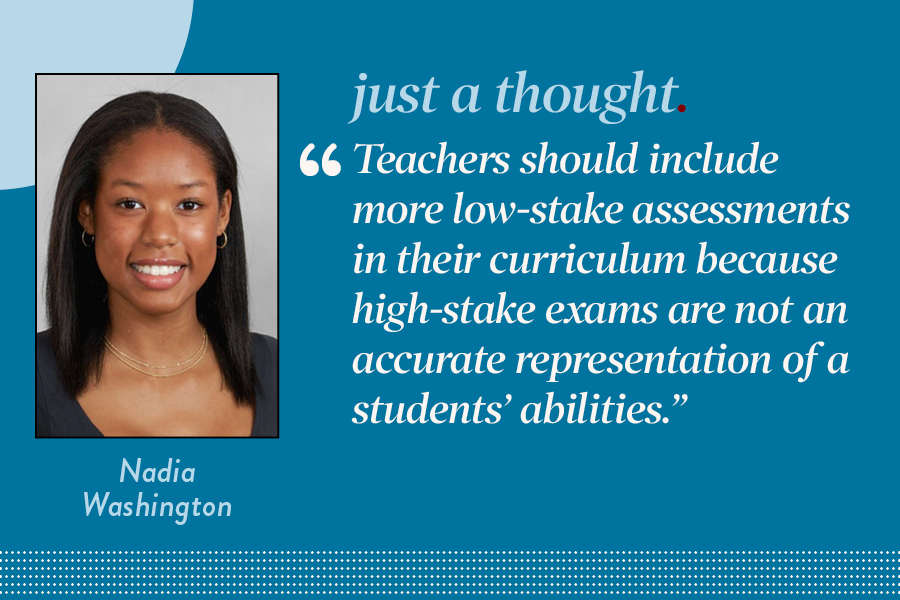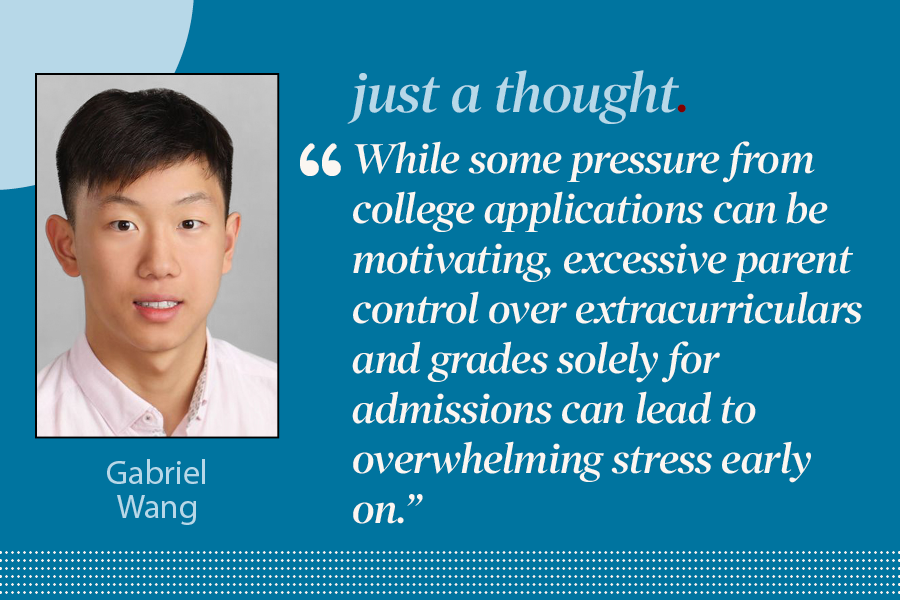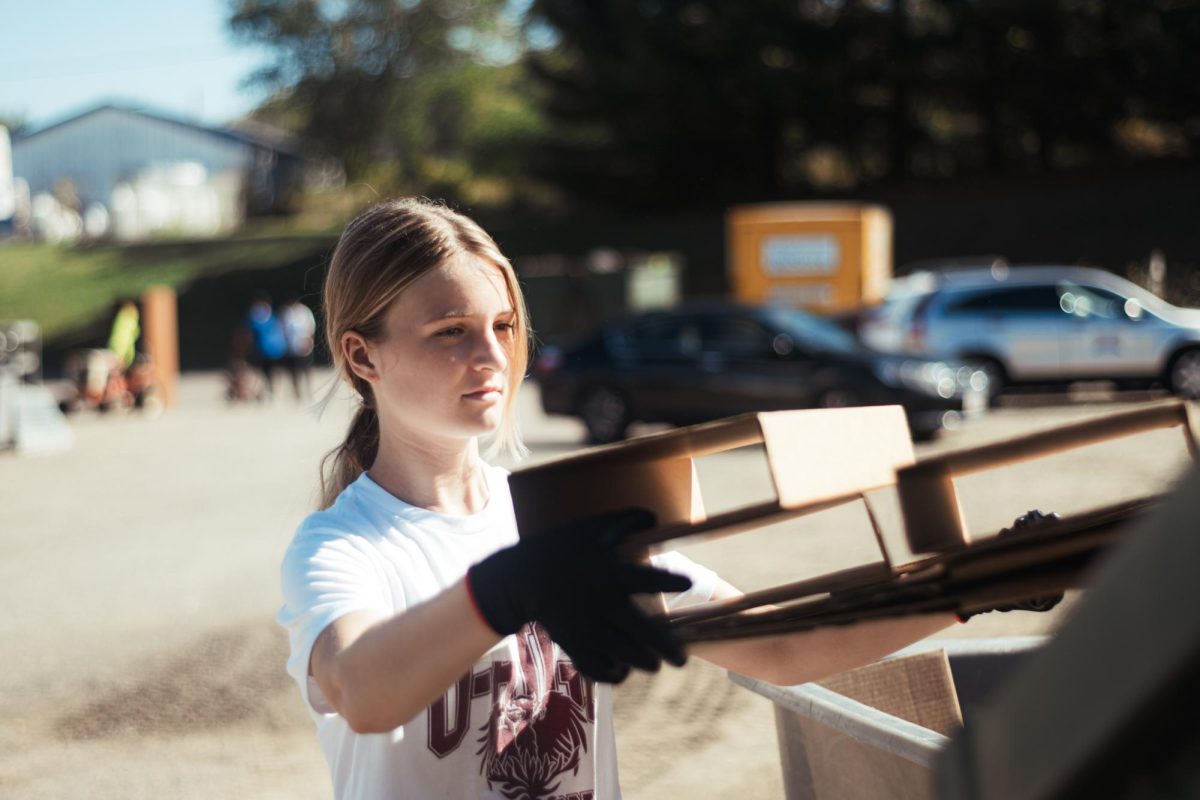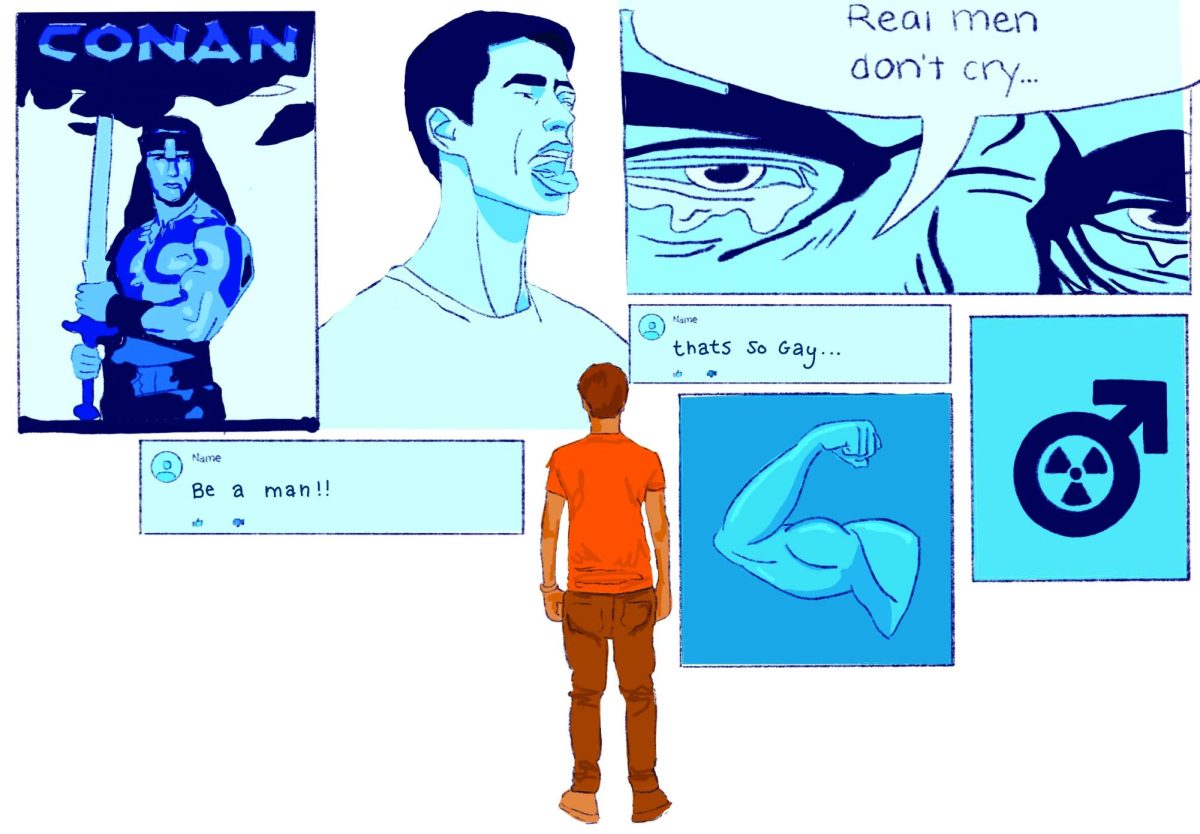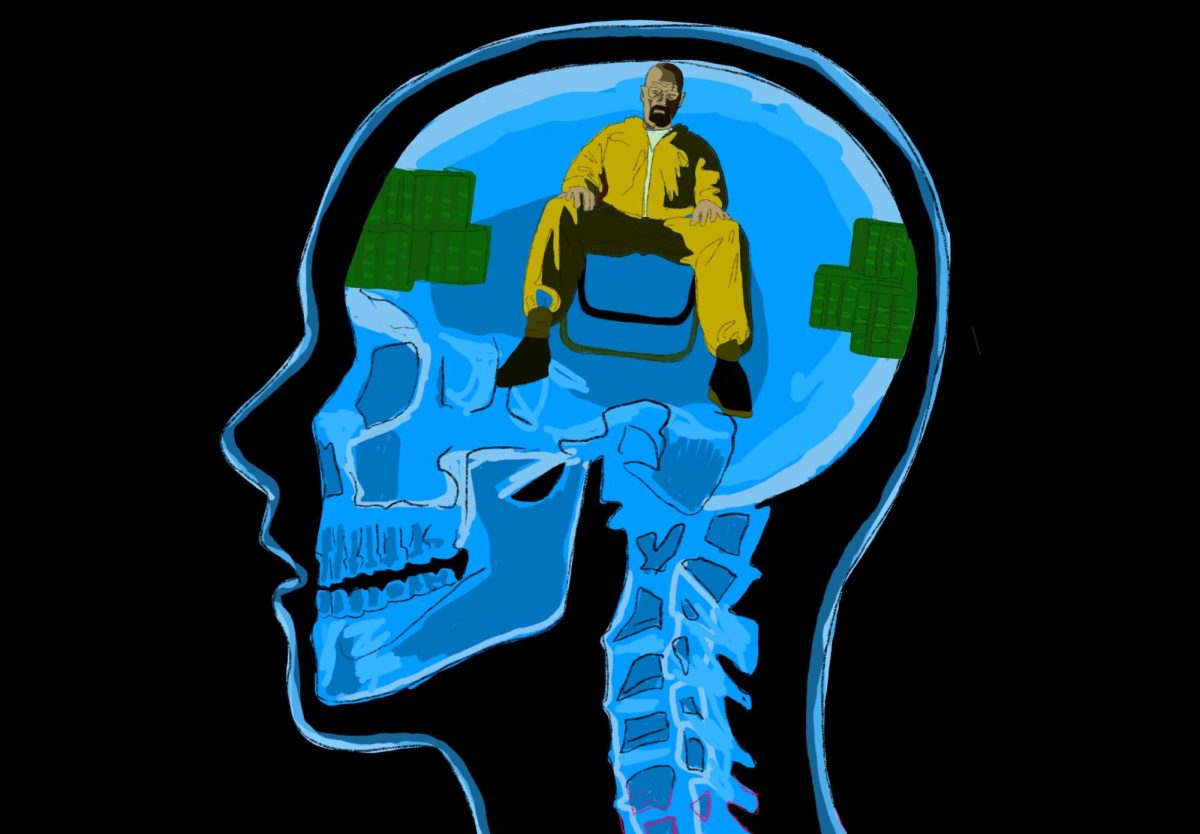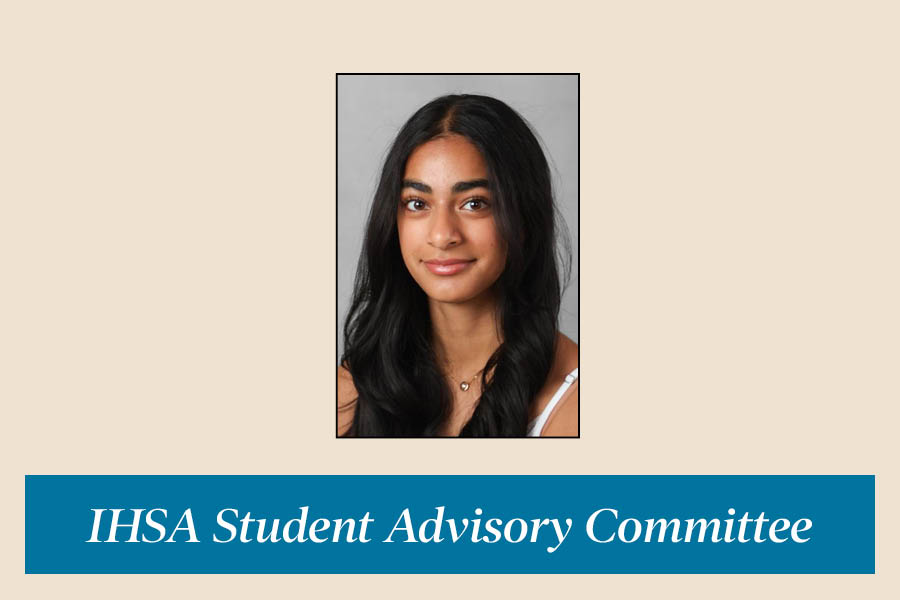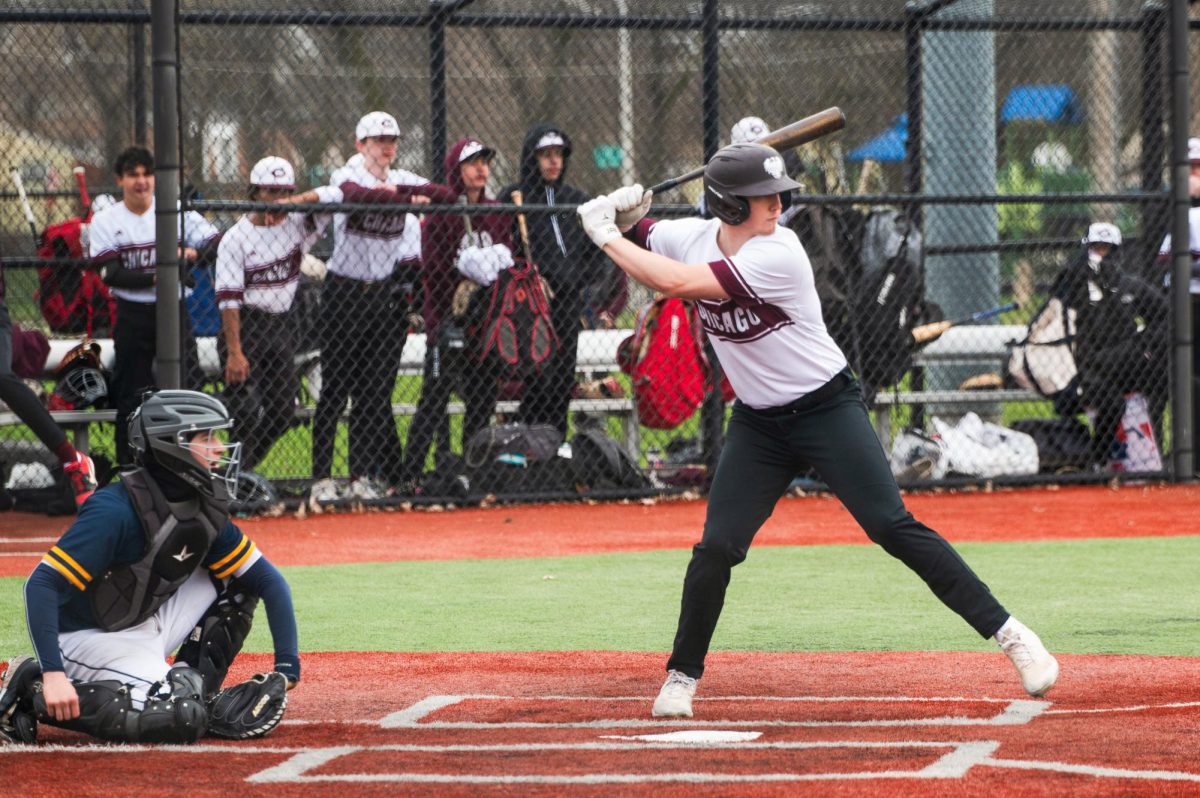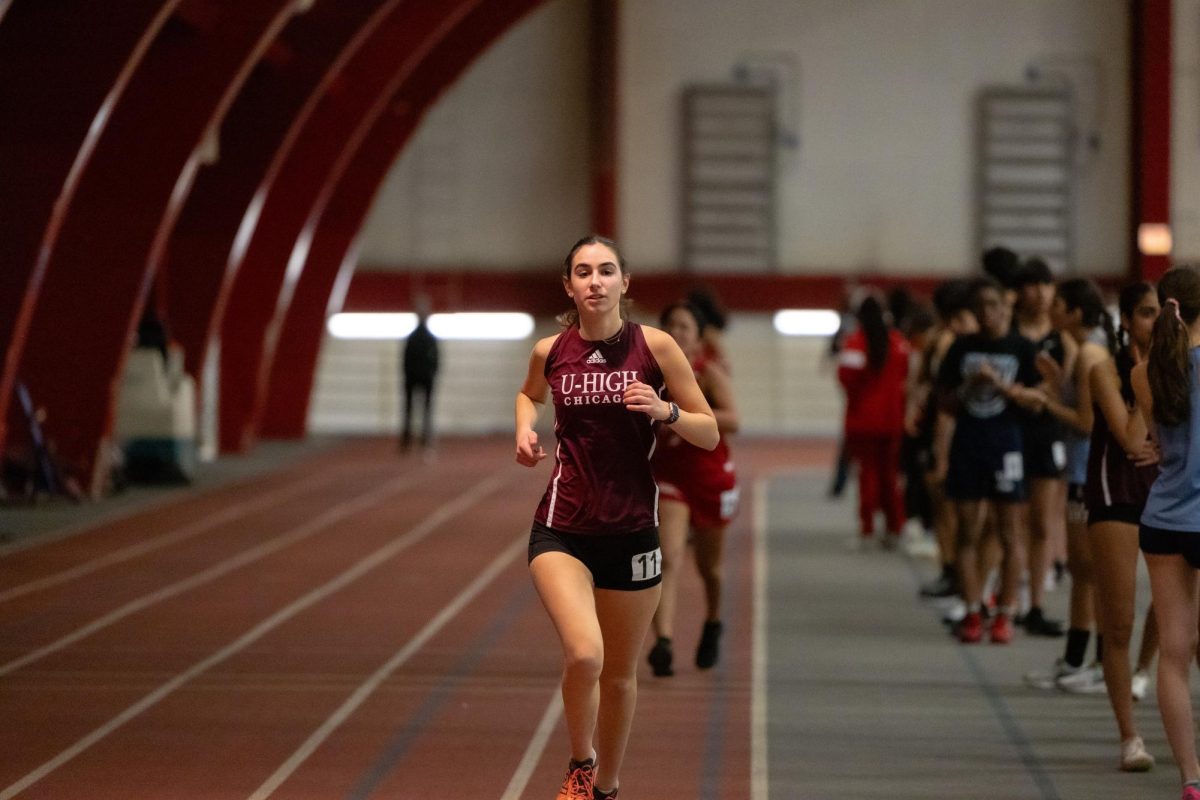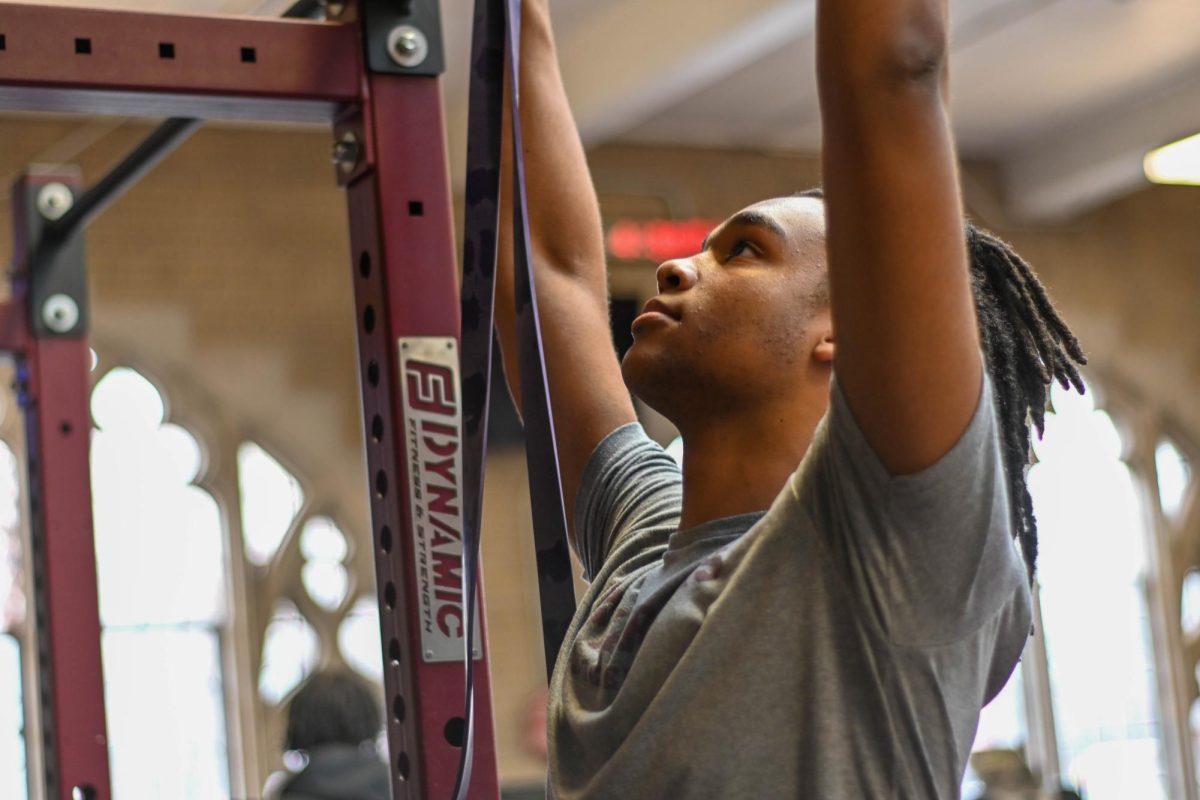The sound of a sparkling water can cracking open. The rustle of a crumpled paper bag being pulled from a backpack. The snap of a lunchbox lid being unfastened. Around the hallway, students settle in with their meals — some with takeout, some with packed lunches, some with plates from the cafeteria, and even some skipping their lunch. Lunch at U-High takes many forms.
Amid diverse dietary needs and personal choices, students at Lab manage their lunch in different ways — some out of necessity, others by preference.
As a vegetarian with limited options at the cafeteria, senior Chani Patterson doesn’t find the food appealing, often skipping lunches as well. Chani’s main concern is cross-contamination.
“The salad bar is prone to cross-contamination. Many people will use the same tongs for different ingredients,” she said. “Sometimes I will see pieces of meat inside of the tofu container. It is much better to safely bring lunch or to eat later at home.”
Junior Aran Malhotra keeps a vegan diet. Unlike Chani, he eats lunch at Lab’s cafeteria. Aran is more concerned about the lack of options provided in the vegetarian station. They often consist of the same combination of tofu, a carbohydrate like rice or sweet potatoes, and a vegetable.
“I feel like they don’t put too much effort into it, so it’s not that appetizing to eat sometimes,” he said. “They could mix it up in such a way where they’re making popular dishes.”
Other students pack their lunches. Junior Carolyne Payne typically packs a salad prepared the night before. She never enjoyed the food from the cafeteria.
“I feel like sometimes cafeteria food can make me feel kind of sick,” she said. “I like the feeling of eating my own food — it kind of separates me from school.”
Staff from Lab’s primary food provider, HandCut Foods, acknowledges student concerns and continues to develop new options.
Ray Griffin, director of dining services, says their priority is maintaining health and safety while offering meals that accommodate various dietary restrictions, including deli stations. Mr. Griffin emphasized ongoing efforts to introduce more variety and improve student engagement with food options, such as possible seasonal food pop-ups.
Due to continued efforts, many students don’t necessarily find the cafeteria lacking. Junior Cruise Lickerman believes that the food quality has improved in recent years.
“I think compared to last year, it’s a lot better,” he said. “HandCut Foods has been doing a really good job. They’re definitely really open to student feedback.”
Cruise also thinks students have the ability to make nutritious choices in the cafeteria if they want to.
“If you know what you’re looking for and you know how to eat nutritiously, you can find a balanced and healthy meal every single day.”
Mr. Griffin agreed with Cruise. He acknowledged that not all students will opt for balanced meals, as taste and preference often take priority. Despite him wanting students to select a variety of options, not just chicken fingers or curly fries, he believes many will continue to choose what they find most appealing.
“This is a grab-and-go situation, and everyone is able to choose whatever they like,” he said. “But, you know, we understand that this is a school environment with teenage kids, and kids want what they want.”
The importance of breakfast and lunch choices extends beyond personal preference. It significantly impacts a student’s energy levels and academic performance. According to the Food Research & Action Center, an anti-hunger advocacy organization, eating lunch helps students stay focused and engaged throughout the school day, improving concentration and cognitive function.
Many students recognize this, including Aran, regardless of where their lunch comes from.
“I’ve skipped lunch before, but it never really turns out good for my afternoon classes,” he said. “I just get super tired and super hungry, can’t really focus.”
Mr. Griffin also believes eating lunch is important.
“You need energy to be able to learn, and if you’re learning on an empty stomach,” he said, “I feel like you don’t retain knowledge, and you’re frustrated because you’re hungry.”


